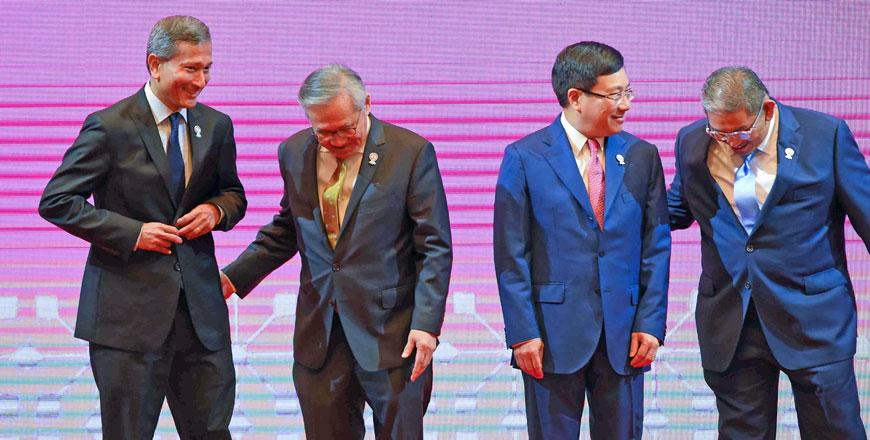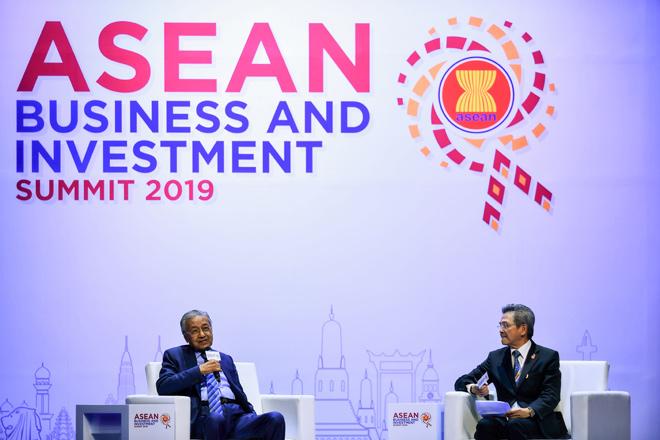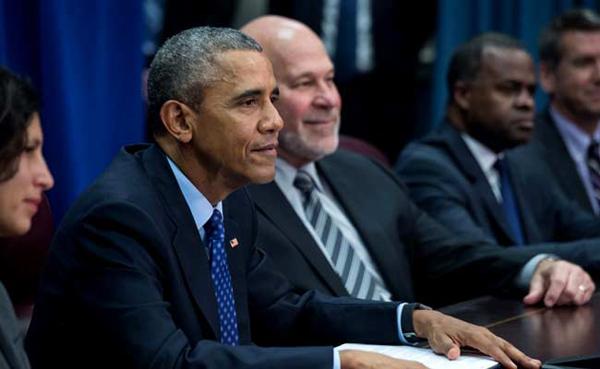You are here
Southeast Asian leaders throw weight behind China-led trade pact
By AFP - Jun 22,2019 - Last updated at Jun 22,2019

Left - right Singapore’s Foreign Minister Vivian Balakrishnan, Thailand’s Foreign Minister Don Pramudwinai, Vietnam’s Foreign Minister Pham Binh Minh and Brunei Second Minister of Foreign Affairs and Trade Erywan Yusof arrive on stage for a group photo during the Association of Southeast Asian Nations (ASEAN) Foreign Ministers’ meeting ahead of the 34th ASEAN summit in Bangkok, on Saturday (AFP photo)
BANGKOK — Southeast Asian leaders gathered in Bangkok on Saturday determined to drive forward the world’s largest commercial pact, with the trade war between the US and China clouding the outlook for their export-led economies.
Trade is taking centre stage at the two-day Association of Southeast Asian Nations (ASEAN) summit, chaired by Thailand.
ASEAN leaders are keen to hasten the signing of a China-drafted commercial deal covering around half the world’s population.
The Regional Comprehensive Economic Partnership (RCEP) includes all 10 ASEAN economies, plus India, Japan, South Korea, Australia and New Zealand.
It is seen as a mechanism for China to draft the rules of Asia-Pacific trade, following a US retreat from the region.
Shortly after his election, President Donald Trump pulled the US from the Trans-Pacific Partnership — which would have been the world’s largest trade deal — slamming it as an American “job killer”.
While tit-for-tat tariffs between the world’s biggest two economies have seen some manufacturers flee China to safer ASEAN hubs, economists say the big picture for global growth is bleak.
In that context, “RCEP is key to increasing trade volume”, Thai government spokesman Werachon Sukhondhapatipak told reporters.
“The faster it [RCEP] gets implemented the better,” Martin M. Andanar, Philippines communications secretary, told reporters.
“Free trade is definitely what we need here in this region,” he said, adding that the US-China trade row has resulted in “the entire world catching a cold”.
Progress on the deal has stuttered in recent months with India digging in over fears cheap Chinese goods could flood its massive consumer market.
Australia and New Zealand have also raised concerns over a lack of labour and environmental safeguards.
Related Articles
BANGKOK — Southeast Asian leaders met on Saturday in Thailand eyeing a breakthrough in talks over the world’s largest trade deal to help thr
WASHINGTON — US President Barack Obama took a dig at China Saturday as he defended the new Trans-Pacific Partnership (TPP) free-trade deal,
SINGAPORE/HANOI — Fifteen Asia-Pacific countries on Sunday signed the world’s biggest free trade deal, seen as a huge coup for China in exte

















